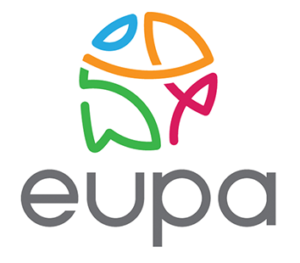Trafficking in Persons (TiP) is a dramatic phenomenon, which involves every year an increasing number of people worldwide. Despite its relevance, for most of the European and Western countries, there is still a great misunderstanding and misconceptions around this thematic.
Differences between trafficking and smuggling
The United Nation established this day every year on July 30th, to raise global awareness on human trafficking, and to better understand the real magnitude of the phenomenon and its consequences. Firstly, is important to clarify the difference between trafficking and smuggling. While the two expressions are often related, since smuggling increases the vulnerability of those who are in a situation of migration, they are very different actions. These two concepts are frequently confused by media, politicians and other stakeholders while debating around the migration context. Trafficking in persons includes various forms of sexual exploitation, forced labour or services, slavery or practices similar to slavery, servitude or the removal of organs. Survivors of trafficking may face discrimination – particularly those who have been trafficked into the sex industry – and can even find themselves criminalised or falling foul of migration laws if they have been illegally trafficked across State borders.
TiP is not a new phenomenon, but it has been officially and widely defined and criminalised in 2000, with the Protocol to Prevent, Suppress and Punish Trafficking in Persons, Especially Women and Children (Trafficking Protocol). The Protocol establishes that to have the crime of human trafficking three elements must coexist: the “act” (domestic or transnational trafficking), the “means” by which the act is done and eventually the “purpose”, thus exploitation. All the three elements are required, except in the case where the victim is a minor under 18 (child), where only the first and third element must be established (Articles 3(c) and (d)). Human trafficking is a real business with an estimated global profit of around €29.4 billion according to the European Council, with 50 million people held in slavery today. Moreover, it’s a crime that compared to other forms of crime has a significant low risk of detection for perpetrators, partly because the distinction from other crimes, as money laundering, extortion and drug trafficking can be tricky.
Migrant smuggling is defined in a different legal instrument, the 2000 Protocol against Smuggling of Migrants by Land, Sea and Air. In this case, the criminal purpose of this act is achieving a “financial or other material benefit” by fostering irregular border crossing for people. This also means that typically smuggling happens in irregular migration context, while trafficking may occur also within regular or internal migration. Finally, the other main difference is that the first “violates the laws of the State that is illegally entered, while trafficking violates the human rights of a person”.
The consequences on persons
The International Organisation for Migration (IOM) stated that people transiting through Libya are considered the most targeted that most likely will be involved in TiP, due to their irregular migration status they are more vulnerable to fall victim of trafficking or other crimes.
Many analyses and cases highlight that in the context of human trafficking female victims are subject to further exploitation and extreme violence, more specifically at a rate three times higher than males, while children are two times more likely to be subjected to violence than adults.
According to the United Nation Office on Drugs and Crime (UNODC), female represent the 65% of victims in trafficking in the world. Moreover, women under investigation are significantly more likely to be convicted than men, due to different reasons and factors such as the difficulty to have a proper access to justice.
UN DESA estimated that in 2020 there were nearly 281 million international migrants worldwide, which corresponds to 3.6% of world population. In the same year, the desperate journeys across the two main migration routes caused the death of more than 1.500 people trying to reach Italy, Spain and Malta from West and North Africa. Among them, most migrants entrust themselves on the services of illegal smugglers in the desperate attempt to reach safe countries, as they have no other option. Fighting against TiP also means preventing physical and psychological traumas, spread of diseases and finally death.
Latest trends and legacies from the pandemic
Covid-19 affected enormously the TiP phenomenon and most importantly on the efforts to combat it. The latest Global Report on TiP 2022, explores how the pandemic increased the vulnerability of the people involved, reducing the capabilities to save and protect the victims in terms of law-enforcement and pursuing criminals. The restrictions and the closing of public spaces during the pandemic have shifted cases of trafficking – such as those for sexual exploitation – in different and more hidden areas, making the work by law enforcement even more difficult. As a result, in 2020 the total number of sentences for trafficking crimes declined by 27%. Moreover, two cases recorded a significant drop, on trafficking of sexual exploitation by 24%, and in cross-border tracking by 21%.
Final thoughts
The intersection between smuggling and trafficking in migration context is a complex issue and challenge to tackle. Especially for the most vulnerable, such as unaccompanied minor and women traveling alone that may fall victim to further exploitations and other crimes. It’s important to emphasize that, as stated by the entire international community, traffickers are criminal who leverages the desperation of people escaping from wars, violence, and persecutions. As an organisation working with migrants across the world, many of whom are at risk from traffickers, MOAS supports efforts to raise awareness to combat trafficking, and work closer with survivors. By improving international understanding about the different forms of trafficking and broad-range of potential victims, more can be done to tackle the roots of this cruel and degrading crime which is happening in almost every country.


